
Alaska Fishing License
Planning to cast a line in Alaska's pristine waters? You'll need to secure an Alaska fishing license before you can reel in that prize catch. These regulations aren't just formalities—they're strictly enforced conservation measures designed to protect the state's rich aquatic ecosystems for generations to come.
Whether you're a resident or visitor, understanding Alaska's fishing license requirements is essential for a legal and enjoyable experience. Licenses vary in duration from single-day permits to annual options, with different pricing structures based on residency status. The consequences of fishing without proper documentation are serious, with on-the-spot fines ranging from $100 to $150 that can quickly dampen your Alaskan adventure.
Understanding Alaska Fishing License Requirements
Alaska fishing license requirements vary based on residency status, fishing purpose, and targeted species. Familiarizing yourself with these regulations ensures compliance with state laws and supports conservation efforts.
Types of Alaska Fishing Licenses
Alaska offers several fishing license options to accommodate different needs and circumstances:
- Resident Sport Fishing License: Available to Alaska residents for recreational fishing activities, costing $20 annually.
- Non-Resident Sport Fishing License: Required for visitors fishing in Alaska, with options ranging from 1-day ($15), 3-day ($30), 7-day ($45), 14-day ($75), to annual ($100) permits.
- Commercial Fishing Licenses: Separate permits for residents and non-residents engaged in commercial fishing operations.
- King Salmon Stamp: An additional requirement for anyone targeting king salmon, regardless of residency status, costing $10 for residents.
- Subsistence Fishing Permit: Available to Alaska Native residents and qualifying individuals who fish for subsistence purposes.
- Military Fishing License: Special rates or exemptions for active-duty military personnel stationed in Alaska.
- Youth Fishing License: Required for non-resident youth aged 16-18, while Alaska residents under 18 fish without a license.
Resident vs. Non-Resident Requirements
Residency status significantly impacts your Alaska fishing license requirements:
For Alaska Residents:
- Must be 18 or older to need a fishing license
- Annual sport fishing license costs $20
- Residents over 60 qualify for free Permanent Senior Resident Licenses
- Disabled veterans may qualify for free fishing licenses
- King salmon fishing requires an additional $10 stamp
- Access to special subsistence and personal use fisheries like dipnetting
For Non-Residents:
- Anyone 16 or older must purchase a fishing license
- Multiple duration options available (1-day through annual)
- Higher fees than resident licenses
- Cannot participate in dipnetting or certain subsistence fisheries
- King salmon stamp required when fishing for king salmon
- Must carry license and applicable stamps while fishing
Purchase your Alaska fishing license online through the Alaska Department of Fish and Game website, from sporting goods stores, fishing guides, or lodging establishments before your fishing trip begins.
How to Purchase an Alaska Fishing License
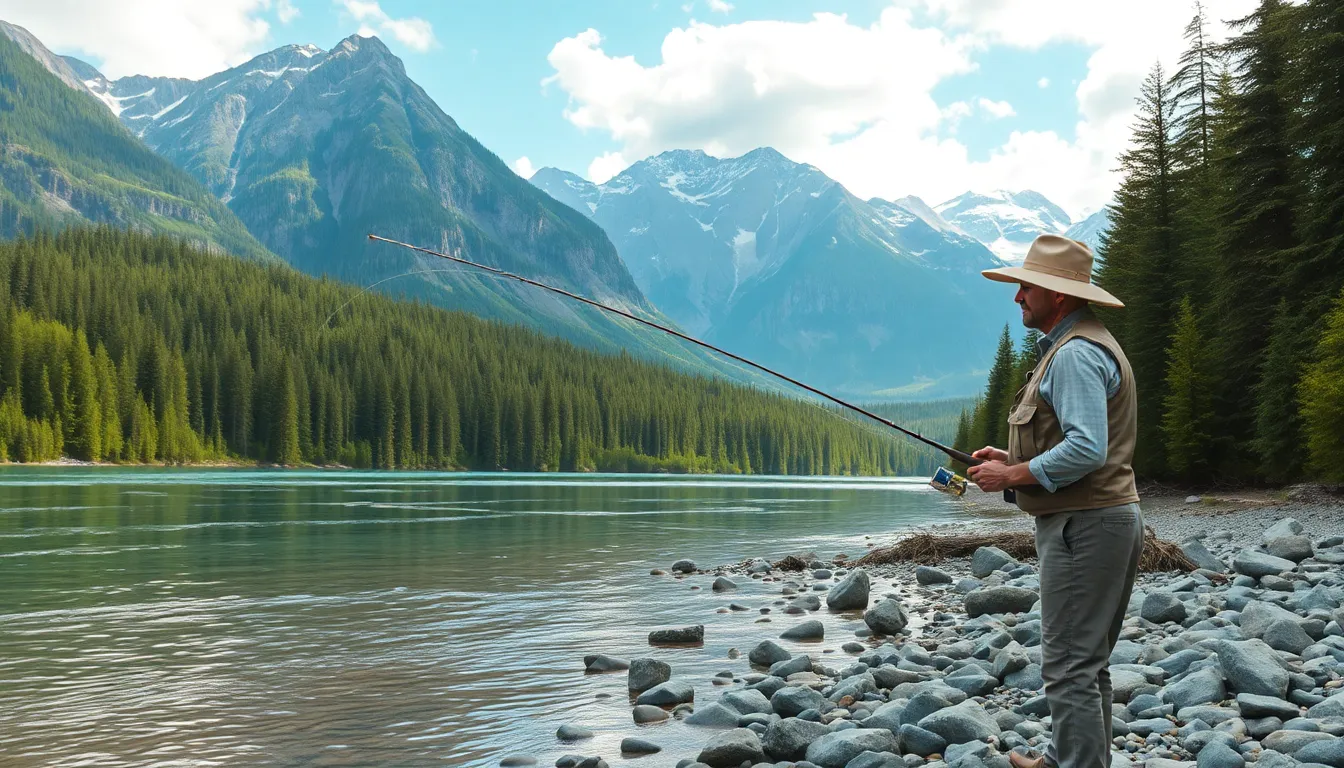
Both residents and nonresidents need a sport fishing license to fish in Alaska. The purchasing process is straightforward and offers multiple convenient options.
Online Purchase Options
The Alaska Department of Fish and Game (ADF&G) website provides a simple online purchase process for fishing licenses. To buy your Alaska fishing license online:
- Access the ADF&G's online store
- Create an account or log into your existing ADF&G portal account
- Select your license type and duration
- Complete payment through the secure portal
- Receive your license digitally immediately after payment
Online purchasing is especially convenient for travelers who want to secure their Alaska fishing license before arriving in the state. You can either print your license or store it digitally on your phone for easy access during your fishing trip.
In-Person Purchase Locations
If you prefer obtaining your Alaska fishing license in person, several options exist throughout the state:
- ADF&G Offices: Visit official Department of Fish and Game offices where staff can assist with selecting the correct license type
- Sporting Goods Stores: Most outdoor and fishing equipment retailers sell fishing licenses
- Local Vendors: Many tackle shops, grocery stores, and convenience stores throughout Alaska are authorized license vendors
Remember that if you're planning to fish for King Salmon, you'll need to purchase a King Salmon stamp in addition to your regular fishing license. Purchase requirements vary by age: Alaska residents 18 and older and nonresidents 16 and older must have a valid fishing license when fishing in Alaska waters.
Alaska Fishing License Costs
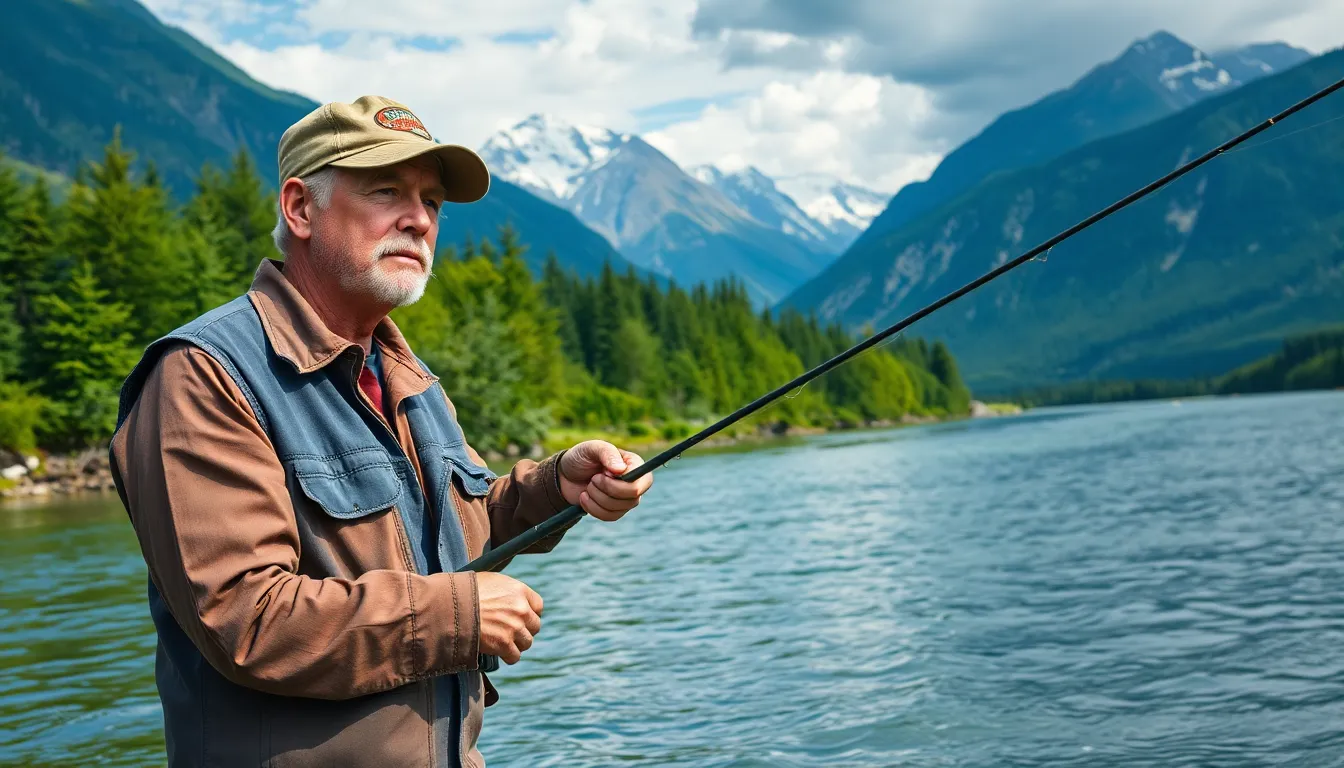
Alaska fishing license prices vary based on residency status, with different options available for residents and non-residents. The Alaska Department of Fish and Game sets these rates to help fund conservation efforts while providing fishing opportunities for all.
Resident License Pricing
Alaska residents enjoy significantly lower fishing license fees compared to visitors. The annual sport fishing license costs $20-$29, offering a full year of fishing access throughout the state. For those who enjoy multiple outdoor activities, combined licenses provide better value – the annual sport fishing and hunting license is priced at $60, while the comprehensive sport fishing, hunting, and trapping license costs $85.
Specialty licenses accommodate various needs:
- Low-income annual license: $5
- Sport fishing license for the blind: $0.50
- Senior (60+) ID card: Free
- Disabled veteran card: Free
If you're targeting king salmon, you'll need to purchase an additional king salmon stamp for $10. This stamp is required when fishing for king salmon in designated waters during the season.
Non-Resident License Pricing
Non-resident Alaska fishing licenses come in various durations to accommodate different trip lengths. Short-term options include:
- 1-day license: $15-$25
- 3-day license: $30-$45
- 7-day license: $45-$70
- 14-day license: $75-$105
For frequent visitors or those planning extended stays, the annual non-resident fishing license costs $100-$145. Military personnel can purchase an annual license at the discounted rate of $20-$29.
Non-residents targeting king salmon must also purchase king salmon stamps:
- 1-day king salmon stamp: $15
- Annual king salmon stamp: $100
Combined hunting and fishing licenses for non-residents range from $175-$260, offering a comprehensive option for those enjoying multiple outdoor activities in Alaska.
King Salmon Stamps and Special Permits
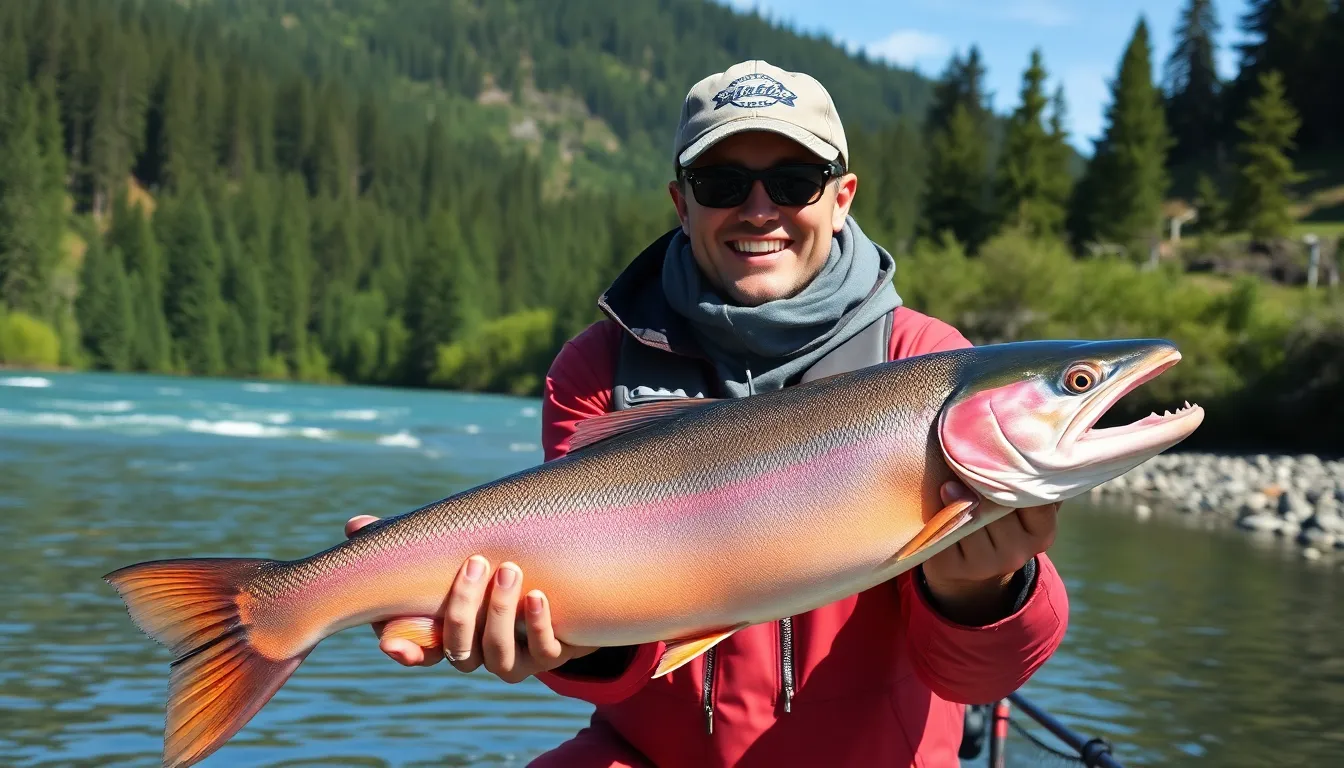
Beyond a standard Alaska fishing license, anglers targeting specific species or fishing in certain areas need additional documentation. King Salmon Stamps and special permits ensure sustainable management of Alaska's valuable fish resources while providing access to premium fishing opportunities.
When You Need a King Salmon Stamp
A King Salmon Stamp is mandatory for anyone fishing for Chinook (King) Salmon in Alaska's fresh or marine waters. You must purchase this stamp in addition to your regular Alaska fishing license when targeting this prized species. The only exception is when fishing in stocked lakes. Several exemptions apply to the King Salmon Stamp requirement:
- Alaska residents under 18 years old
- Non-residents under 16 years old
- Holders of ADF&G Permanent Identification Cards (seniors aged 60+ and qualifying disabled veterans)
King Salmon Stamps are available in the same time increments as fishing licenses: 1-day ($15), 3-day ($30), 7-day ($45), 14-day ($75), and annual ($100). You can purchase these stamps online through the Alaska Department of Fish and Game website, at Fish and Game offices, or through licensed vendors throughout the state.
Other Special Permits
Your Alaska fishing license may need supplementing with additional permits depending on your fishing activities:
Sport Fishing Harvest Record Card: This free card is required to document catch limits for specific Rainbow Trout and King Salmon fisheries. You must obtain this card if you're fishing in designated areas, even if you're exempt from standard license requirements. The card is free for residents under 18, non-residents under 16, and Permanent ID Card holders.
Permanent Identification Card: Alaska residents aged 60 and older can obtain this free card instead of purchasing an annual fishing license. This card provides lifetime fishing privileges and exempts holders from King Salmon Stamp requirements. Disabled veterans with a service-connected disability of 50% or more also qualify for this card.
Combination Licenses: If you plan to hunt and fish in Alaska, you can purchase combination licenses. These comprehensive options save money compared to buying separate licenses. However, specific permit details vary by activity, and you might still need additional stamps for certain species.
All special permits must remain in your possession while fishing and are subject to inspection by enforcement officers. Failing to carry the proper documentation can result in significant fines and penalties, potentially disrupting your Alaska fishing experience.
Age Requirements and Exemptions
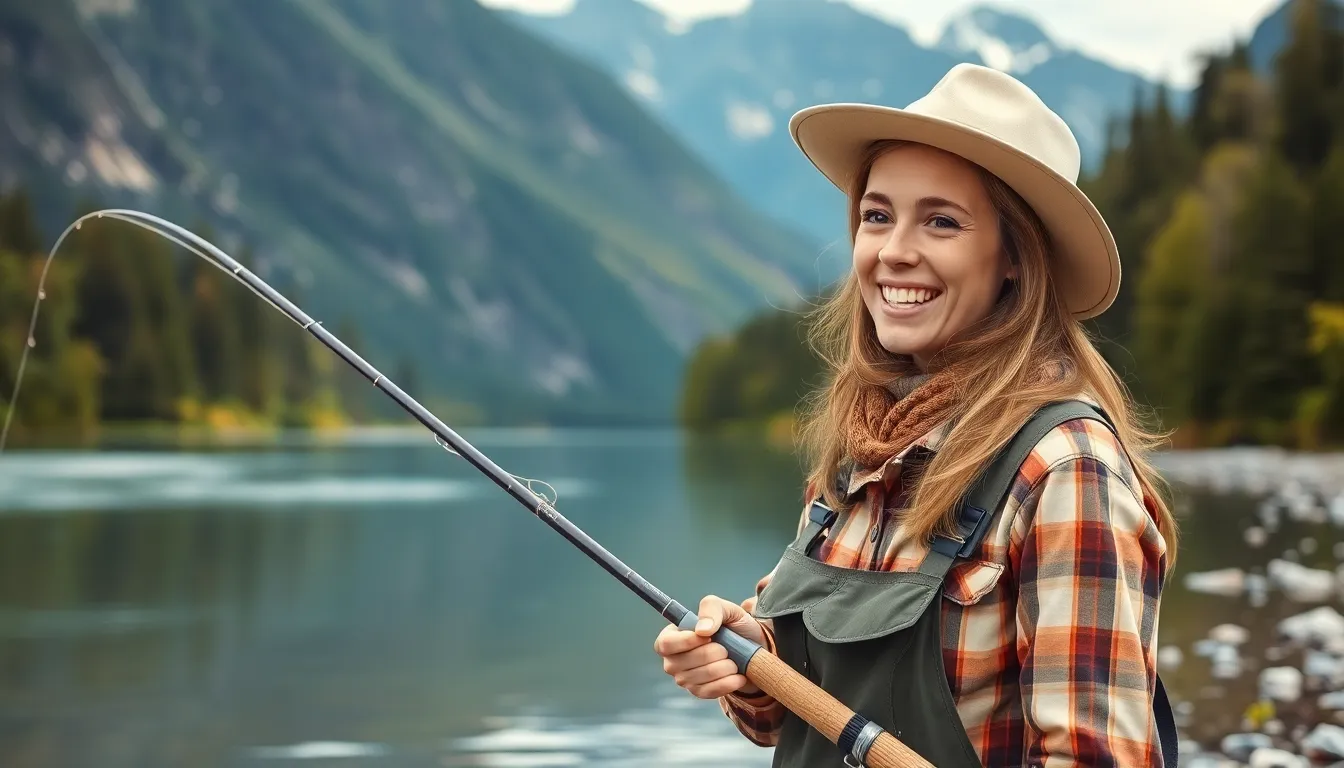
Alaska fishing license requirements vary based on age and residency status. Understanding these distinctions helps you avoid unnecessary purchases or potential violations.
Resident Age Requirements:
- Residents under 18 years old don't need a sport fishing license, except when proxying or guiding
- Residents between 18 and 60 years old must have a valid sport fishing license
- Residents 60 and older can apply for a free Permanent Senior Resident License, though they may choose to purchase a standard license
Non-Resident Age Requirements:
- Non-residents under 16 years old are exempt from fishing license requirements
- All non-residents 16 years and older must obtain a non-resident sport fishing license regardless of age
Special Considerations:
- King Salmon Stamp is required for anglers targeting king salmon, regardless of age exemptions for regular licenses
- Sport Fishing Harvest Record Cards must be maintained by all anglers fishing for species with annual limits
- Disabled Veterans may qualify for a free Disabled Veteran License
Your fishing license must be in your possession while fishing in Alaska waters. Licenses are valid in both freshwater and saltwater environments and can be carried in either paper or electronic form. These requirements help protect Alaska's fishery resources and support sustainable fishing practices.
License Validity and Duration Options
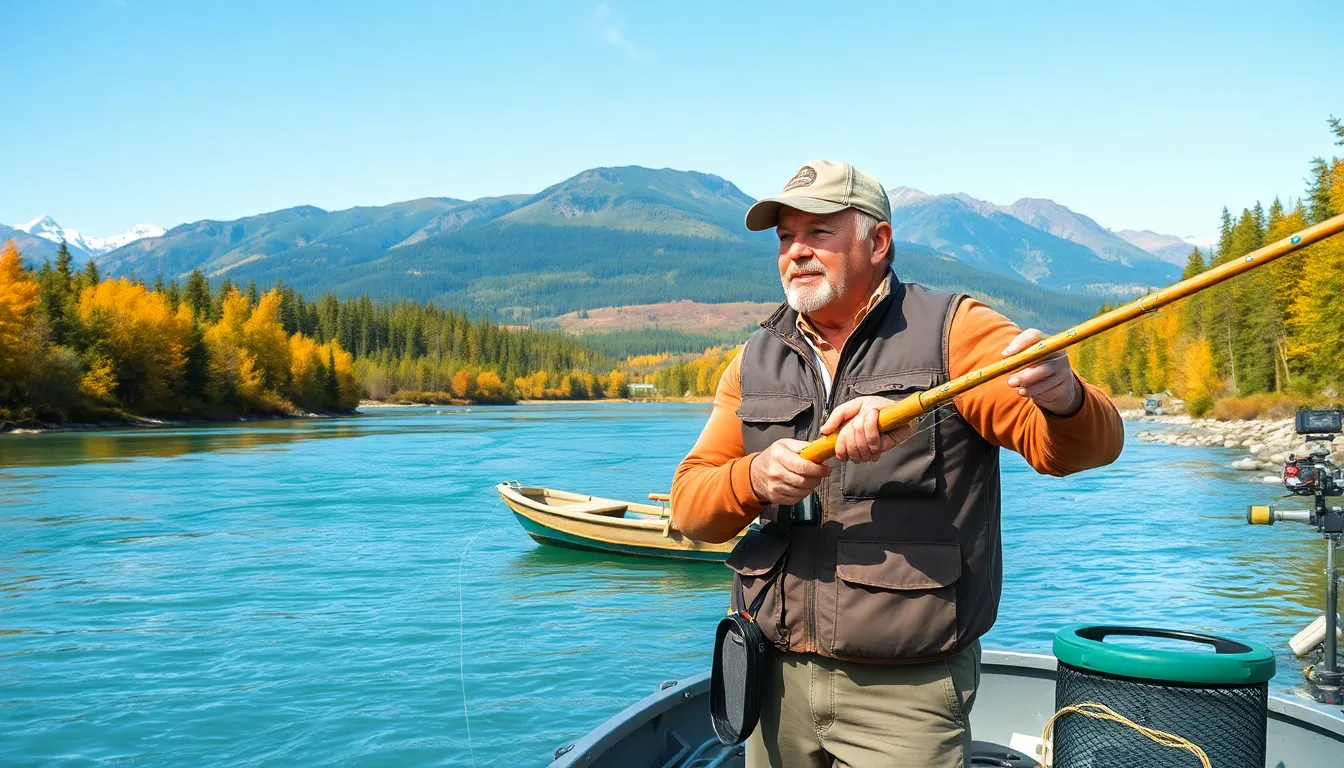
Alaska fishing licenses have distinct validity periods based on license type and residency status. Understanding these duration options helps you select the most appropriate license for your fishing plans.
Annual Licenses
Annual Alaska fishing licenses are valid from the date of purchase through December 31 of the same calendar year. Residents pay $20 for an annual sport fishing license, while non-residents pay $100. These licenses provide the most value for anglers planning extended stays or multiple fishing trips throughout the year.
Trapping licenses follow a different timeline, remaining valid through September 30 of the following year after purchase.
Short-Term Non-Resident Options
Non-residents visiting Alaska for shorter periods can purchase time-limited fishing licenses that match their stay duration:
- 1-day license: $15
- 3-day license: $30
- 7-day license: $45
- 14-day license: $75
These short-term licenses are valid from their purchase date and must be used on consecutive days. For example, a 3-day license cannot be split across non-consecutive days.
License Requirements by Age and Residency
Age requirements for Alaska fishing licenses vary by residency status:
- Alaska residents: Required for ages 18 and older
- Non-residents: Required for ages 16 and older
Additional License Considerations
If you're targeting king salmon, you'll need to purchase a King Salmon Stamp in addition to your regular fishing license. The stamp prices vary based on duration:
| King Salmon Stamp | Resident Cost | Non-Resident Cost |
|---|---|---|
| 1-day | N/A | $15 |
| 3-day | N/A | $30 |
| 7-day | N/A | $45 |
| 14-day | N/A | $75 |
| Annual | $10 | $100 |
Low-income Alaska residents may qualify for reduced-cost licenses based on federal poverty guidelines, making fishing more accessible to all Alaskans.
License Formats
Your Alaska fishing license is available in electronic format, which you can download as a PDF or access through your online account with an electronic signature. If you lose your license, carbon copy replacements are available for $5.
Digital vs. Physical License Options
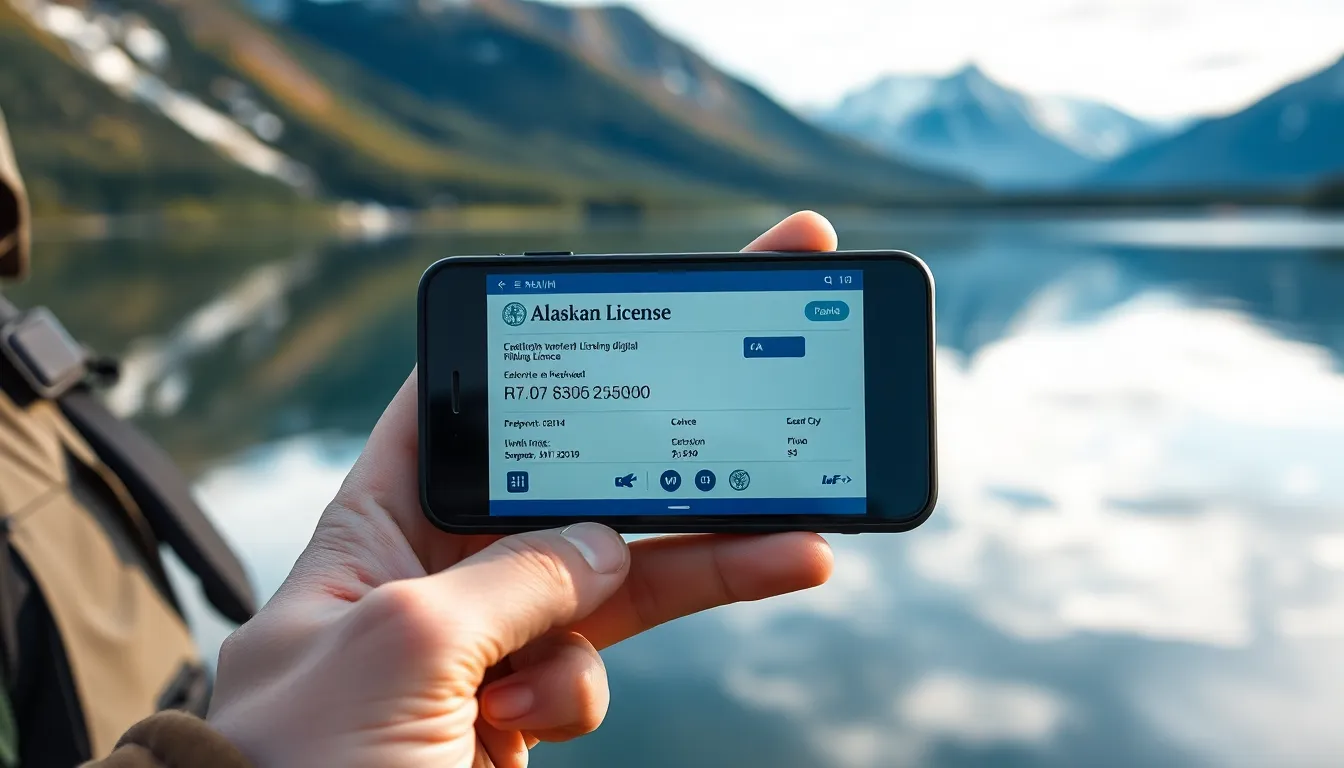
Available License Formats
The Alaska Department of Fish and Game (ADF&G) offers multiple format options for your fishing license to accommodate different preferences. Your Alaska fishing license can be carried in either digital or physical form, giving you flexibility based on your situation and comfort level.
Electronic licenses provide a convenient digital option. After purchasing online, you can download your license as a PDF file and either sign it electronically on your device or print it for a physical signature. This format allows you to store your license on your smartphone for easy access while fishing or keep a printed copy in your tackle box.
eSigned licenses automatically come with your purchase when using an ADF&G account online. These digital licenses eliminate the need for a physical signature and can be stored on your mobile device or printed as needed.
In-Person Purchase Options
If you prefer a traditional physical license, carbon copy licenses remain available at select vendors and ADF&G offices throughout Alaska. These handwritten licenses provide a tangible option for those who don't want to rely on digital devices while fishing. Should you lose your carbon copy license, you can obtain a duplicate for a $5 fee.
Physical licenses can be purchased at numerous locations across Alaska:
- ADF&G offices in major cities
- Sporting goods stores and outdoor retailers
- Fishing guide businesses
- Lodges and resorts
- Local tackle shops
- Various authorized vendors
License Validity Period
Your Alaska fishing license validity period depends on the type you purchase. Most standard licenses remain valid until December 31st of the purchase year, regardless of when you buy them. For non-residents visiting Alaska for a short fishing trip, specialized short-term licenses are available with validity periods of 1, 3, 7, or 24 days from the purchase date.
With both digital and physical options available, you can choose the Alaska fishing license format that best suits your fishing plans and personal preferences.
Fishing Without a License: Penalties and Consequences
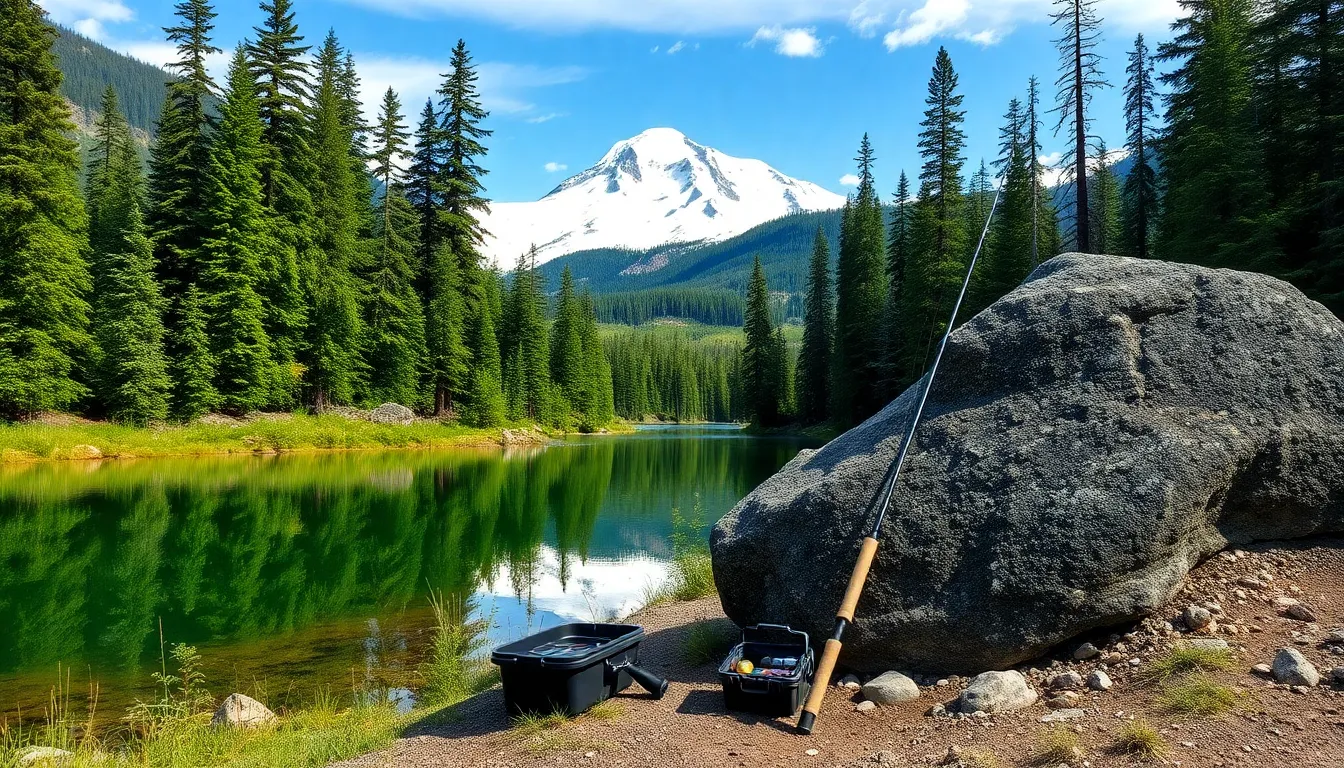
Financial Penalties
Fishing without a valid Alaska fishing license carries significant financial consequences. Fines typically start at $100 but can increase substantially depending on the circumstances and species involved. For sport fishing violations, penalties can reach up to $300 per offense. Commercial fishing violations, such as operating without a Limited Entry Permit, result in more severe financial penalties, with fines up to $15,000 as outlined in Alaska Statute 16.05.723.
Legal Consequences
Beyond monetary fines, fishing without a license in Alaska can lead to serious legal repercussions. You might face a court appearance for more significant violations. Commercial fishing offenses can result in imprisonment for up to one year. Authorities strictly enforce these regulations to protect Alaska's diverse fish populations and preserve the natural environment.
Equipment Confiscation
Alaska fishing authorities have the power to confiscate your fishing equipment if you're caught without a proper license. This confiscation includes:
- Fishing rods and reels
- Tackle and bait
- Catches from your fishing trip
- In severe cases, even boats or other vessels
The forfeiture of catch is particularly common in commercial fishing violations, representing a substantial financial loss beyond the initial fine.
Loss of Fishing Privileges
Repeat offenses or serious violations can result in the suspension or revocation of your fishing privileges in Alaska. This penalty prevents you from legally fishing in the state for a specified period, potentially ruining planned fishing trips and activities. Military personnel, residents, and non-residents alike must comply with licensing requirements to avoid these consequences.
Enforcement Practices
Multiple Alaska agencies have enforcement authority over fishing regulations. License checks occur regularly throughout Alaska's fishing areas, particularly in popular sport fishing locations. You must carry your fishing license and any required stamps or permits, such as the King Salmon Stamp, on your person at all times while fishing. Law enforcement officers have the right to request and inspect these documents, and failure to produce them results in immediate penalties.
License Display Requirements
Alaska regulations require you to display your fishing license when requested by authorities. This requirement applies to all license types, including resident, non-resident, military, and special category licenses. The display requirement extends to additional permits like the King Salmon Stamp, which costs between $10-$100 depending on the license duration and residence status. Proper documentation prevents disruption to your fishing experience and helps avoid penalties.
Common Questions
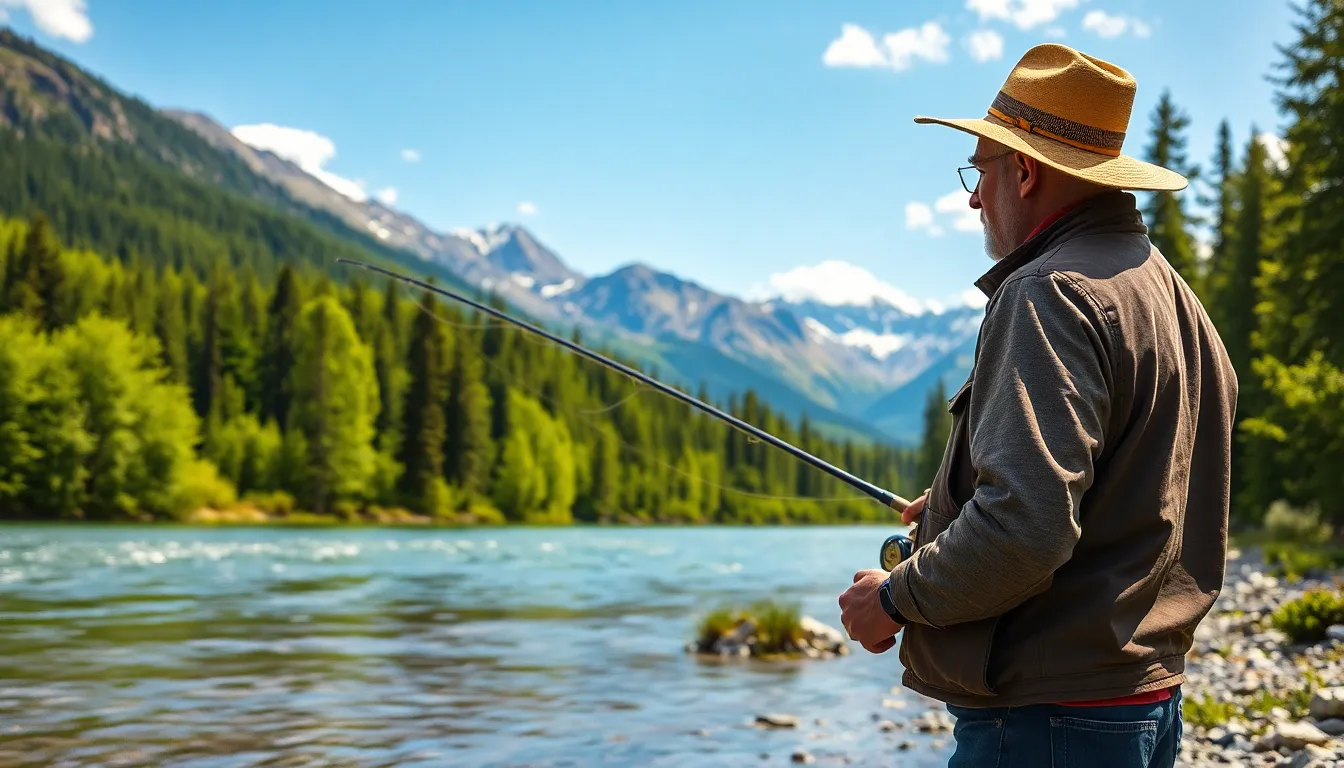
Here are answers to frequently asked questions about Alaska fishing licenses to help you plan your fishing trip properly.
How much is a non-resident fishing license in Alaska?
Non-resident fishing license costs in Alaska vary by duration:
| License Duration | Cost |
|---|---|
| 1 day | $15 |
| 3 days | $30 |
| 7 days | $45 |
| 14 days | $75 |
| Annual | $100 |
If you're targeting king salmon, you'll need an additional King Salmon stamp costing $15 per day for non-residents. Military personnel may qualify for certain exceptions to these fees.
What fishing license do I need to fish in Alaska?
The Alaska fishing license you need depends on your residency status and age:
- Non-residents age 16 and older need a non-resident sport fishing license for both freshwater and saltwater fishing
- Alaska residents age 18 and older require a resident sport fishing license, except for specific subsistence exemptions
- King salmon anglers of any residency status must purchase a King Salmon stamp in addition to their regular license when targeting king salmon
Purchase your Alaska fishing license online through the Alaska Department of Fish and Game website, at ADFG offices, or through authorized vendors like sporting goods stores, fishing guides, and lodging establishments.
What happens if you get caught fishing without a license in Alaska?
Fishing without a proper Alaska fishing license results in immediate penalties:
- Fines starting at $100-$500 for first-time offenders
- Potential confiscation of fishing gear and equipment
- Possible court appearance requirements for more serious violations
- Risk of suspension or revocation of fishing privileges for repeat offenders
Alaska enforcement agencies regularly check licenses in popular fishing areas, and authorities require you to present your license and any required stamps upon request.
What is the fishing limit in Alaska for non-residents?
Fishing limits for non-residents in Alaska vary by species and location:
- King salmon: Often limited to 1 per day with specific size restrictions
- Halibut: Generally 2 per day, though restrictions vary by area
- Other species: Limits differ based on species and fishing location
These daily and seasonal bag limits help protect Alaska's fish populations. Check the current Alaska Department of Fish and Game regulations for specific waters you plan to fish, as limits can change annually or seasonally.


